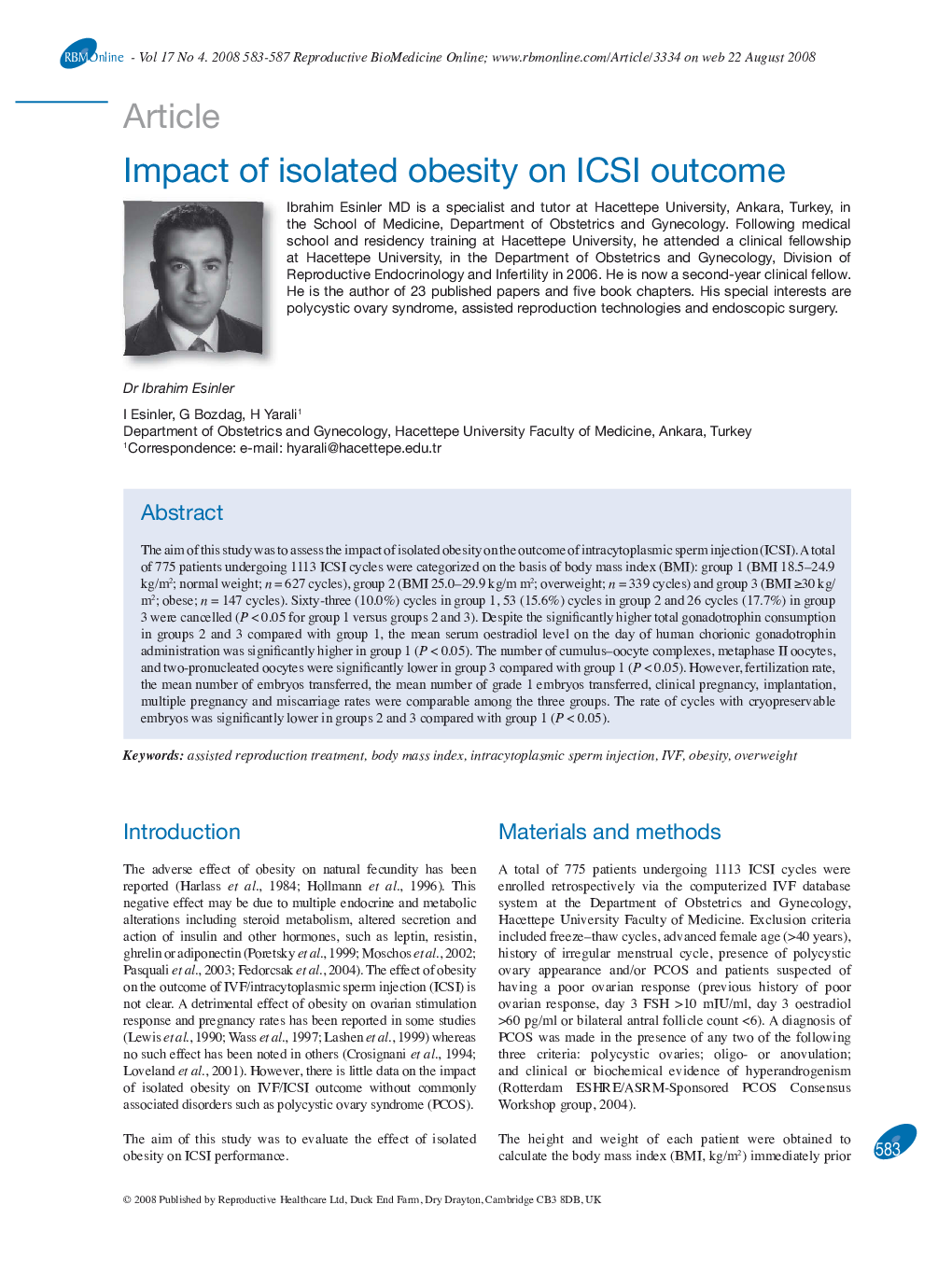| کد مقاله | کد نشریه | سال انتشار | مقاله انگلیسی | نسخه تمام متن |
|---|---|---|---|---|
| 3972392 | 1256808 | 2008 | 5 صفحه PDF | دانلود رایگان |

The aim of this study was to assess the impact of isolated obesity on the outcome of intracytoplasmic sperm injection (ICSI). A total of 775 patients undergoing 1113 ICSI cycles were categorized on the basis of body mass index (BMI): group 1 (BMI 18.5–24.9 kg/m2; normal weight; n = 627 cycles), group 2 (BMI 25.0–29.9 kg/m m2; overweight; n = 339 cycles) and group 3 (BMI ≥30 kg/m2; obese; n = 147 cycles). Sixty-three (10.0%) cycles in group 1, 53 (15.6%) cycles in group 2 and 26 cycles (17.7%) in group 3 were cancelled (P < 0.05 for group 1 versus groups 2 and 3). Despite the significantly higher total gonadotrophin consumption in groups 2 and 3 compared with group 1, the mean serum oestradiol level on the day of human chorionic gonadotrophin administration was significantly higher in group 1 (P < 0.05). The number of cumulus–oocyte complexes, metaphase II oocytes, and two-pronucleated oocytes were significantly lower in group 3 compared with group 1 (P < 0.05). However, fertilization rate, the mean number of embryos transferred, the mean number of grade 1 embryos transferred, clinical pregnancy, implantation, multiple pregnancy and miscarriage rates were comparable among the three groups. The rate of cycles with cryopreservable embryos was significantly lower in groups 2 and 3 compared with group 1 (P < 0.05).
Journal: Reproductive BioMedicine Online - Volume 17, Issue 4, 2008, Pages 583-587